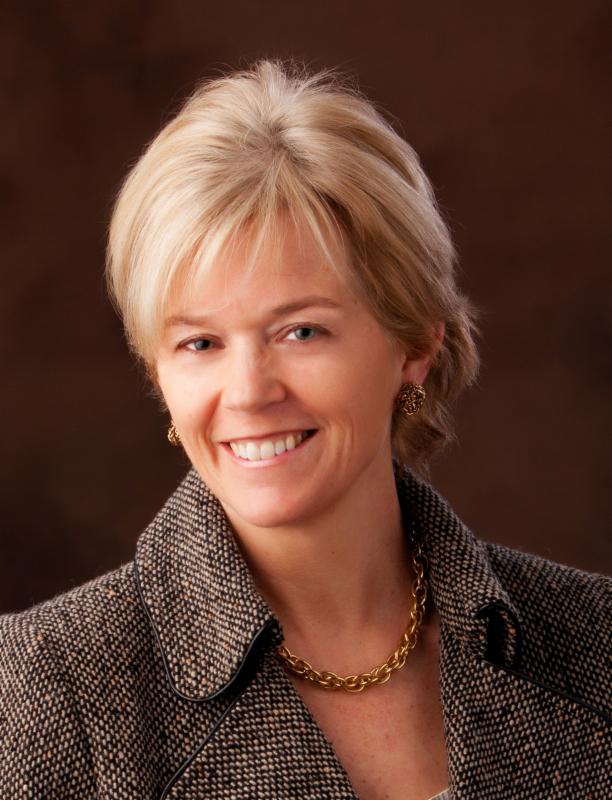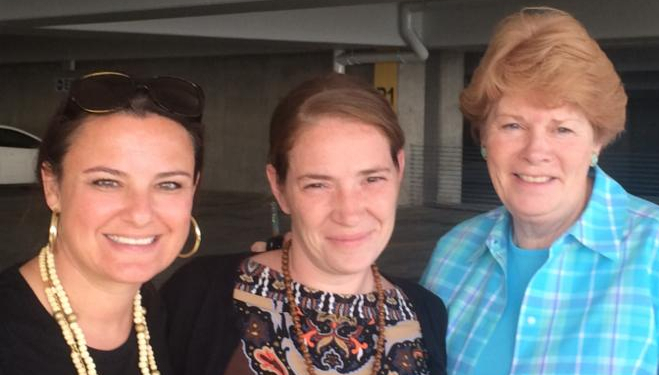
August 2015
|
|
August 2015: In This Issue:
|
|
|
SADS Safe Schools Month in September -
Prior Planning Can Save a Life!!
All students with a SADS condition need a care plan on file at their school.

Parents, now that your kids are back in school you need to ensure they are safe for the 2015-2016 school year! Make sure your child has an updated care plan in place, with a current list of medicines and emergency information, and know who is responsible for it.
Talk to all teachers and staff members who will have any interaction with your child to verify they know your child's condition and how to monitor it. This includes their homeroom teacher, P.E. teachers, recess monitors, lunch room monitors, bus drivers, school secretaries, principals, coaches, etc. If your school has achieved Heart Safe School Accreditation, you're done. If not, you'll need to make sure there are AEDs at school and a medical emergency plan.
Download the Back to School Checklist by clicking HERE and order your packet online HERE or email [email protected] for more information.
Donate in honor of SADS Safe Schools Awareness Month
to support the efforts of the SADS Foundation
to protect your children at school and beyond!
More than 30 schools nationwide have earned Heart Safe School Accreditation making the entire school community a safe place to learn and play.
More than 600 Back-to-School Packets are distributed annually to schools in order to implement the SADS Safe School program, ensuring your children's safety where most of their day is spent during the year.
The SADS Foundation partners with school nurses everywhere both individually and through School Nurses Associations to bring awareness about SADS warning signs and emergency procedures to our school's health professionals.
Please contact Jan at 801-531-0937 or [email protected] for more information.
|
Welcome Our New Director of Family Support: Lynn Johnson
The SADS Foundation is pleased to announce that Lynn Johnson, MD has joined our team as our Director of Family Support! Below is a quick note of introduction from her:
 "I am very excited to join SADS as the Director of Family Support. A genetic cardiac condition runs in my family, and I have been a strong advocate for greater awareness of sudden cardiac arrest, especially after my brother unexpectedly collapsed while working out at the gym. Thanks to expert CPR provided by his wife and a fellow gym member, he survived.
I received my undergraduate degree in history from Dartmouth, my MD from the University of Virginia, and I did my postgraduate training in radiology at UCSD and Stanford. My husband and I live in Northern California and have three children attending college on the east coast. I enjoy distance running, triathlons, walking our dogs, book clubs, and traveling (especially if historical sites are involved).
I am looking forward to using my medical background and experience as a patient advocate and researcher to help families live and thrive with SADS conditions."
|
Best Wishes to Grace D
rouin
 We send Grace off with appreciation for her time at the SADS Foundation and best wishes on her new adventure. Grace sends the following message to all of you: We send Grace off with appreciation for her time at the SADS Foundation and best wishes on her new adventure. Grace sends the following message to all of you:
"Thank you to all of the SADS Families and Staff that have made my two years here so memorable and worthwhile. I am so grateful to have been a part of the SADS Staff and Family. During my time here at the SADS Foundation I met and worked with amazing people and feel that together we have genuinely made a difference. Although I will be leaving for a different opportunity, I will always have a place in my heart for the SADS Foundation. It has genuinely been a pleasure and I will miss all the wonderful friends I have made during my time here."
|
The Timothy Syndromes Alliance Is Becoming a Reality
 Family Members Mary Ann Ciciarelli and Courtney Waller met with Katherine Timothy, Dr. Susan Etheridge and the staff members of the SADS Foundation to strategize and put plans in motion to establish the Timothy Syndromes Alliance. The Alliance will focus on the specific needs of individuals with TS1 and TS2 conditions, as well as those with Long QT 8, through sponsorship and partnership with the SADS Foundation. We are extremely excited to begin this new initiative to enhance services for this special group of families. For more information please contact Lynn at 801-531-0937 or
[email protected].
|
Rachelle Cook's Senior Paper
"Genetic Testing on Neonates for Cardiac Arrhythmias"
This month, we are pleased to feature a research paper written by Rachelle Cook, one of our students with CPVT. She wrote "Genetic Testing on Neonates for Cardiac Arrhythmias" for her high school AP English class. Not only does she share with us some of her personal story, but she also presents a lot of great information about the symptoms and genetics of channelopathies. Rachelle also makes a compelling case for screening of young children. Click
HERE for a link to her paper.
|
Research Opportunity for Young Adults, Teens and Parents
 The UNITY-GC Survey is looking for individuals ages 15-30 years of age that have a genetic condition and/or parents of such individuals to participate in a public health evaluation survey. The researchers' ultimate goal with this survey is to improve health services for people living with genetic conditions by learning about the health needs of teens and young adults as they transition to adult health care services. The UNITY-GC Survey is looking for individuals ages 15-30 years of age that have a genetic condition and/or parents of such individuals to participate in a public health evaluation survey. The researchers' ultimate goal with this survey is to improve health services for people living with genetic conditions by learning about the health needs of teens and young adults as they transition to adult health care services.
The UNITY-GC Survey can be accessed
HERE
. If interested, please participate in the survey soon, as it closes to new participants on August 31st.
|
Lifestyle and Exercise Study in Long QT Syndrome
 LIVE-LQTS
is an exciting new study whose goal is to determine how lifestyle and exercise impact the well-being of individuals with LQTS. Whether you like to walk, run, play baseball, or sit and read a book, you can participate in this study and help us learn more about lifestyle choices and LQTS. This study is funded by the National Institutes of Health. LIVE-LQTS
is an exciting new study whose goal is to determine how lifestyle and exercise impact the well-being of individuals with LQTS. Whether you like to walk, run, play baseball, or sit and read a book, you can participate in this study and help us learn more about lifestyle choices and LQTS. This study is funded by the National Institutes of Health.
Currently, it is recommended that many individuals with LQTS avoid most vigorous sports, based on possible links between vigorous competitive sports and sudden cardiac arrest for some people with LQT. However, the risks and benefits of mild, moderate, or vigorous exercise for LQTS patients remain unknown. LIVE-LQTS is looking to obtain information on how exercise and other lifestyle choices affect the well-being of people living with LQTS throughout the lifespan, from children to adults.
|
Gilead - Type 3 Long QT Study
Are you a physician that takes care of individuals diagnosed with Type 3 Long QT syndrome? If so, they may be interested in this study. Patients who have been diagnosed with LQT3, and are between the ages of 18-65, may be eligible to participate in a clinical trial whose purpose is to evaluate an investigational drug for use in patients with LQT3.
The study will consist of approximately 6 months of treatment, and will include multiple clinic visits during the course of the study. If eligible, participants may receive compensation for time and effort. Travel reimbursement will be provided to participants and an optional accompanying companion.
For more information, please visit clinicaltrials.gov and search for this study: NCT02300558 or email [email protected].
|
|
|
|
|